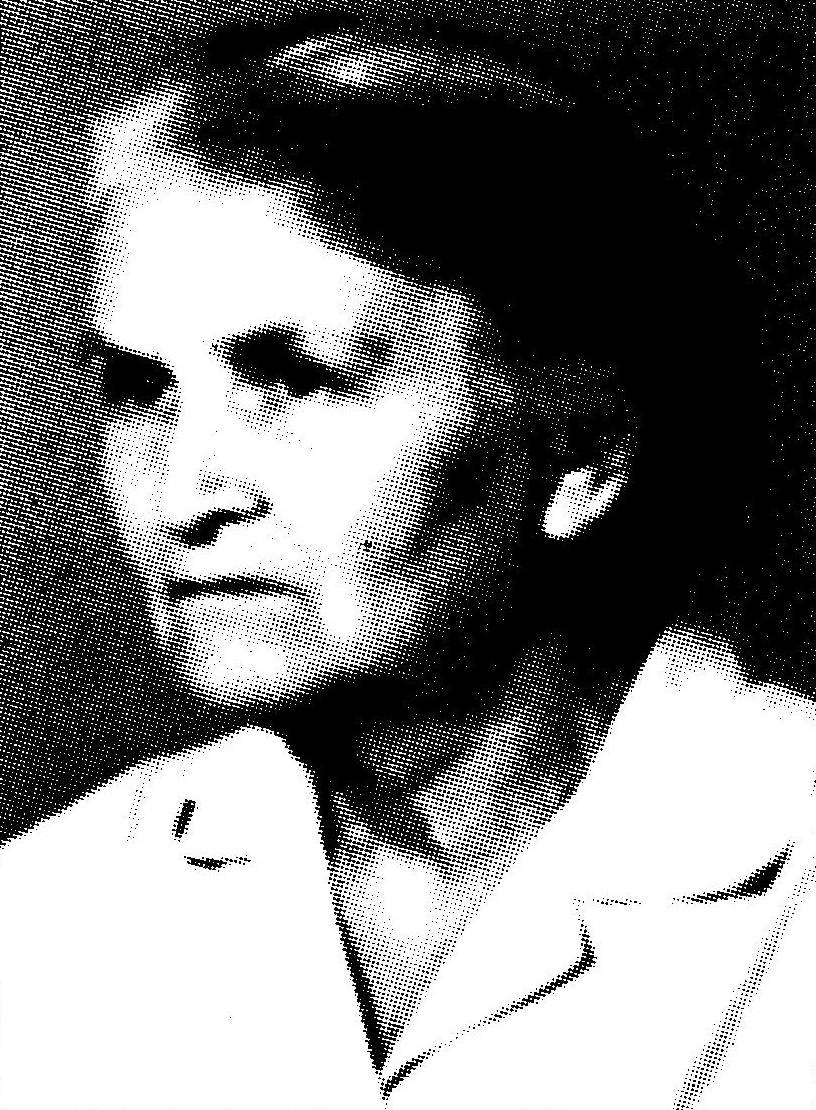Valentyna Pavlivna Drabata (born May 17, 1908, in the village of Severynivka, now in the Zhmerynka Raion of Vinnytsia Oblast—died March 26, 1983, in Kyiv) was an educator and a participant in the Ukrainian resistance movement.

From 1925 to 1928, she studied at the Mohyliv-Podilskyi Pedagogical College and worked as a teacher in the Vinnytsia Oblast. In 1931, during a campaign of teacher “self-mobilization,” she went to Central Asia. After stopping to visit relatives in Tashkent on her way, she stayed there to work. From 1932 to 1933, she worked as a laboratory assistant in the chemistry lab of the Central Asian State Institute of Non-Ferrous Metals. In 1939, she graduated from the Faculty of Physics and Mathematics at the same institute. From 1939 to 1942, she was an assistant in the physics department of the Central Asian Industrial Institute. From 1942 to 1952, she held positions as a senior laboratory assistant and an assistant at academic institutions in Tashkent.
In 1952, after moving to Kyiv, she worked as an assistant in the physics department at the Ukrainian Agricultural Academy. In the 1960s, she wrote a physics practicum in Ukrainian for the academy’s students. She retired in 1963.
In the 1960s and 70s, she associated with democratically-minded youth, retyping and distributing samvydav. She wrote letters to the Central Committee of the CPSU and other official state and party bodies about the state of the Ukrainian language, culture, and schooling in Ukraine, supporting her claims with facts, citations from the official press, and quotes from Lenin’s works. In one such article, she analyzed the book “Lenin on Ukraine,” clearly demonstrating Lenin’s cruelty, tyranny, and adventurism, as well as his intention to exploit and plunder Ukraine. Some of her writings were circulated in samvydav. Notably, in January 1971, the “Ukrainian Herald” published her protest statement to the Chairman of the Supreme Soviet of the Ukrainian SSR regarding the sentencing of Valentyn Moroz. Some of her articles made their way abroad, and the Voice of America radio station used Drabata’s materials in its broadcasts about Ukraine. Drabata socialized with Taras Franko, Ivan Honchar, Tetyana Tsymbal, and others. In the 1970s, she visited the families of the repressed, offering them moral and, when possible, material support. She was friends with Oksana Meshko and corresponded with her during Meshko’s exile in Khabarovsk Krai (Russia). In 1983, she died tragically. Her body was found near her apartment building. The official version claimed she had fallen from a balcony, though her friends believed that KGB agents were involved in her death. She is buried at the Baikove Cemetery in Kyiv.
Bibliography
1. Tsymbal, Viktoriia. “Let Us Not Forget Valentyna Drabata.” In *We in History*, vol. 36. Kyiv: Spadshchyna, 1998, pp. 179–184.
2. *Resistance Movement in Ukraine, 1960–1990: An Encyclopedic Guide*. Chief Editor Osyp Zinkevych. 2nd, supplemented ed. Kyiv: Smoloskyp, 2012, pp. 240–241.